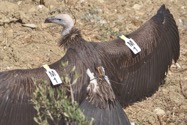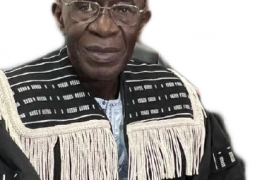
Fagimba Camara made this revelation as WABSA, a birdlife Africa partner NGO in The Gambia, received message through an email from SEO/Birdlife, a Spanish partner to Birdlife International (BLI).
He explained that SEO/Birdlife were very interested in getting the satellite tag back home, more importantly, to know the reason why they travelled to The Gambia.
According to Fagimba, SEO and Group of Research and Protection of Birds in Morocco (GREPOM), the Moroccan partner to BLI are implementing a Project in Morocco called: “Tag with GPS and Satellite Transmitters of Rupell Vultures” with the support of the International Union for Conservation of Nature (IUCN) Mediterranean office”.
“WABSA is not part of the project, but it was BLI who engaged us to help SEO/Birdlife from Spain to trace out the Ruppell vulture in the country,” Fagimba explained.
He further explained that the project is geared to know more about the fate of the ruppell vultures. There are two possibilities why ruppell vulture was found by someone, then brought to his house either as curiosity, killed, kept as souvenir or some kind of trade.
During their investigation, he added, they inserted the coordinates provided by SEO, to the GPS to track the tags, it directed them to Dobo village where the vulture was killed. Upon reaching the village, GPS directed them to a compound where they spotted the remains of the vulture dumped at the back yard of the compound.
After all the necessary searching and tracking in the compound, he continued they proceeded to the compound of the alkalo of Dobo where they briefed him about their mission to his village.
“During our discussion with village alkalo, we explained to him that rupell vultures with satellite tags were killed in your village which we track up to a compound and spotted his remain,” he stated.
“The alkalo after visiting the scene, called upon the hunter and explained to him our mission to the village. The hunter admitted killing five rupell vultures but was quick to add that he did not sell them or make them for ritual purposes but used them for family consumption.”
“We made the following recommendations: That’s to conduct more sensitisation and survey in the country to identify the hotspot of rupell vultures, conduct more satellite tag on hooded and rupell vultures, to monitor and engage the authorities to prosecute the perpetrators.



